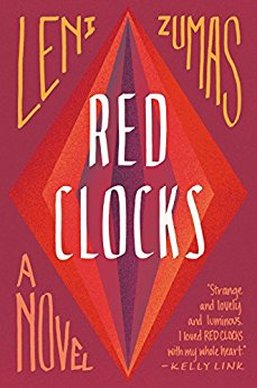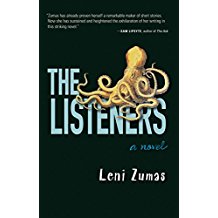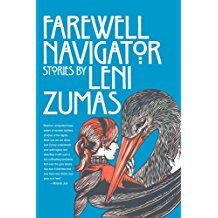Unlike other dystopian novelists, Zumas plots no dramatic martial law. Her characters simply wake to a president they didn’t vote for and then later to the legislation that decides how their bodies are used. In an Oregon fishing town, four characters swallow what it now means to be a woman. One wishes she could escape her children, one surrenders a child for adoption, one seeks abortion and one desperately wants to be a mother. The story centers on Ro, “The Biographer,” a depressed, single, high school history teacher, whose father lives in a Florida retirement home, whose brother died of a heroin overdose, and whose last chance to have a child is through artificial insemination. Ro visits a fertility specialist’s office, described as “a room for women whose bodies are broken,” where she tries to rationalize her urgent impulse to motherhood. Susan, “The Wife,” lives in the house she grew up in with an aloof husband who teaches at the same school as “The Biographer.” Susan begs him to attend couples therapy while trying not to resent their two toddlers who annoy and fatigue her stay-at-home life. Susan envies Ro’s childlessness but offers only condescension, both women burdened by societal expectations. Adopted Mattie, “The Daughter,” loses her virginity to her careless boyfriend. The promising but pregnant 15-year-old in the Biographer’s class, she pursues abortion in a world that now views her as criminal. Gin, “The Mender,” a defiant healer, shares forest herbs to help end pregnancies for women without money or insurance. Arrested in a modern-day witch hunt, her narrative unites the other women, who work to get Gin acquitted. And Eivør, a 19th-century, Faroese polar explorer and the compelling subject of Ro’s biography, disrupts each chapter with fragments of her brutal determined life, serving as a compass for women who persist. Zumas fluently speaks their truths, from the Daughter’s fear and earnestness, to the Mother’s conflicted emotions and the Mender’s earthy intuition. Her prose will suddenly quicken in a flood of anxiety, sarcasm and rationality. “She doesn't want to skip the Math Academy. (She kicks Nouri’s gothsickle ass at calculus.) Or to push it out. She doesn't want to wonder; and she would. The kid too—Why wasn’t I kept? Was his mother too young? Too old? Too hot? Too cold? She doesn’t want him wondering, or herself wondering. Are you mine? And she doesn’t want to worry she’ll be found. Selfish. But she has a self. Why not use it?” Thrilled by her mercurial style, I bookmarked a dozen pages in Zumas’ "Red Clocks," a story that cleverly reveals the underpinnings of a current socio-political wrangle yet maintains hope for personal transformation. Leni Zumas is one to watch. -Ann Scott This review originally appeared in the Aspen Daily News on March 1, 2018
0 Comments
Your comment will be posted after it is approved.
Leave a Reply. |
Adult News & reviewsLibrary news, info about upcoming events, reviews of books and films, and a look at the topics that affect us as a library. Archives
July 2023
|
General |
Borrowing |
About |




 RSS Feed
RSS Feed
